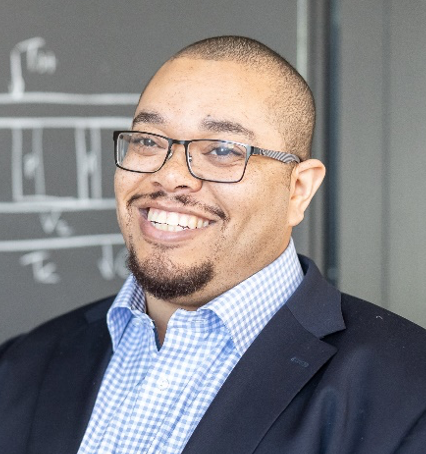Event Date/Time
Location
222
Series/Event Type

Thermal energy transport, conversion and storage are central to many of the industries, technologies and devices we use every day, from our cell phones and laptops to our refrigerators and automobiles. However, there are still a number of thermal phenomena for which the underlying science is not well understood and on the engineering side, there are regimes of operation/performance that are theoretically possible, but have remained inaccessible from a practical perspective. This talk will review how the Atomistic Simulation & Energy (ASE) research group at MIT has managed to realize important advancements on some of these problems, by rethinking problems from the beginning and challenging established paradigms. This talk will highlight new developments in our understanding of phonons (e.g., atomic vibrations in rigid bodies), and our ability to model their behaviors accurately. In addition, this talk will review recent progress towards enabling heat transfer at extreme temperatures by using liquid metal as a heat transfer fluid in all graphite/ceramic infrastructures. Most notably, the ASE group has made significant strides towards developing thermal batteries as a solution to the grid storage problem (www.gofourth.com), as well as CO2 free hydrogen production based on methane pyrolysis.
Speaker Bio
He graduated with his B.S. in Mechanical Engineering from Florida A & M University as well as a M.S. and Ph.D. in Mechanical Engineering from MIT. Professor Henry’s primary research is in heat transfer, with an emphasis on understanding the science of energy transport, storage and conversion at the atomic level, along with the development of new industrial scale energy technologies to mitigate climate change. After finishing his Ph.D. he worked as a postdoc in the Materials Theory group at Oak Ridge National Laboratory (ORNL) and then as postdoc in the Materials Science Department at Northwestern University. After Northwestern, he worked as a fellow in the Advanced Research Projects Agency – Energy (ARPA-E), where he focused on identifying new program areas, such as higher efficiency and lower cost energy capture, conversion and storage.
Professor Henry has made significant advances and contributions to several fields within energy and heat transfer, namely: solar fuels and thermochemistry, phonon transport in disordered materials, phonon transport at interfaces, and he has developed the highest temperature pump on record, which uses an all ceramic or graphite mechanical pump to pump liquid metal above 2000°C. This technological breakthrough, which is now in the Guinness Book of World Records, has opened the door for new high temperature energy systems concepts, such as methane cracking for CO2 free hydrogen production and a new grid level energy storage approach known as “Sun in a Box”, that stores energy 10X cheaper than lithium ion batteries. In addition to liquid metal pumping, Professor Henry also set a new world record for thermophotovoltaic (TPV) efficiency at 41% in 2022, and it was recognized by Physics World Magazine as one of the Top 10 Breakthroughs of 2022. These two major technological breakthroughs led to the technology commercialized by the company he founded – Fourth Power (www.gofourth.com), where he serves as Chief Technologist.
Professor Henry is a National Science Foundation (NSF) Waterman Laureate and has been recognized by many awards including: the NSF Career Award, the Nokia Bell Labs Prize, the Lockheed Inspirational Young Faculty Award, the Georgia Power Professor of Excellence Award, the ASME Bergles-Rohsenow Young Investigator Award in Heat Transfer and he was the winner of the 2018 World Technology Award for Energy.